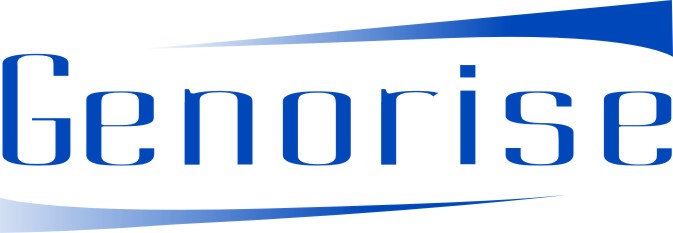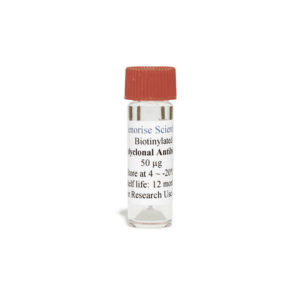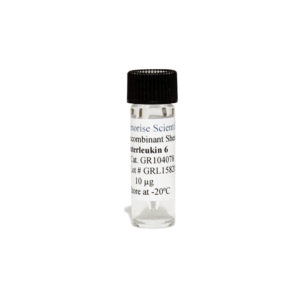Recombinant Canine IL-7
$99.00 – $456.00
The recombinant canine IL-7 protein is derived from in vivo expression of canine IL-7 gene in E. coli and purified using his-tag affinity column and can be used in multiple applications such as cell culture, ELISA and western blot.
Alternative names for IL-7: Interleukin 7, IL7
This product is for Laboratory Research Use Only not for diagnostic and therapeutic purposes or any other purposes.
- Description
- Product Citations
- Reviews (0)
Description
Genorise Recombinant Canine IL-7 Summary
Alternative names for IL-7: Interleukin 7, IL7
Alternative name for canine: Dog
Product Specifications
| Purity | > 97%, by SDSPAGE under reducing conditions and visualized by silver stain. |
| Endotoxin Level | < 0.1 EU per 1 μg of the protein by the LAL method. |
| Activity | Measured in a cell proliferation assay using PHA-activated human peripheral lymphocytes. Yokota T et al. (1986) Proc Natl Acad Sci USA 83:5894.
The ED50 for this effect is typically 0.1-0.5 ng/ml. |
| Source | E. coli derived canine IL-7. |
| Accession # | F1PA28 |
| N-Terminal Sequence Analysis | Ser |
| Amino Acid Sequence | Ser22-His155 |
| Predicted Molecular Mass | 15 kDa |
| SDS-PAGE | 15 kDa, reducing conditions |
Background:
IL-7 is a hematopoietic growth factor secreted by stromal cells in the bone marrow and thymus. It is also produced by keratinocytes,[1] dendritic cells,[2] hepatocytes,[3] neurons, and epithelial cells,[4] but is not produced by normal lymphocytes.[5] IL-7 stimulates the differentiation of multipotent (pluripotent) hematopoietic stem cells into lymphoid progenitor cells (as opposed to myeloid progenitor cells where differentiation is stimulated by IL-3). It also stimulates proliferation of all cells in the lymphoid lineage. It is important for proliferation during certain stages of B-cell maturation, T and NK cell survival, development and homeostasis. IL-7 is a cytokine important for B and T cell development. IL-7 and the hepatocyte growth factor (HGF) form a heterodimer that functions as a pre-pro-B cell growth-stimulating factor. This cytokine is found to be a cofactor for V(D)J rearrangement of the T cell receptor beta (TCRß) during early T cell development.[6] IL-7 can be produced locally by intestinal epithelial and epithelial goblet cells, and may serve as a regulatory factor for intestinal mucosal lymphocytes. Knockout studies in mice suggested that IL-7 plays an essential role in lymphoid cell survival. IL-7 binds to the IL-7 receptor, a heterodimer consisting of Interleukin-7 receptor alpha and common gamma chain receptor,[7] resulting in a cascade of signals important for T-cell development within the thymus and survival within the periphery. IL-7 promotes hematological malignancies (acute lymphoblastic leukemia, T cell lymphoma).[18]
References
- Heufler C, et al. (1993). J. Exp. Med. 178 (3): 1109–14.
- Kröncke R, et al. (1996). Eur. J. Immunol. 26 (10): 2541–4.
- Sawa Y, et al. (2009). Immunity. 30 (3): 447–57.
- Watanabe M, et al. (1995). J. Clin. Invest. 95 (6): 2945–53.
- Fry TJ, Mackall CL (2002). Blood. 99 (11): 3892–904.
- Muegge K, Vila MP, Durum SK (July 1993). “Interleukin-7: a cofactor for V(D)J rearrangement of the T cell receptor beta gene”. Science. 261 (5117): 93–5.
- Noguchi M, et al. (1994). Science. 262 (5141): 1877–80.
- Or R, et al. (1998). Cytokines Cell. Mol. Ther. 4 (4): 287–94.
Product Citations
Be the first to review “Recombinant Canine IL-7”
You must be logged in to post a review.


























Reviews
There are no reviews yet.